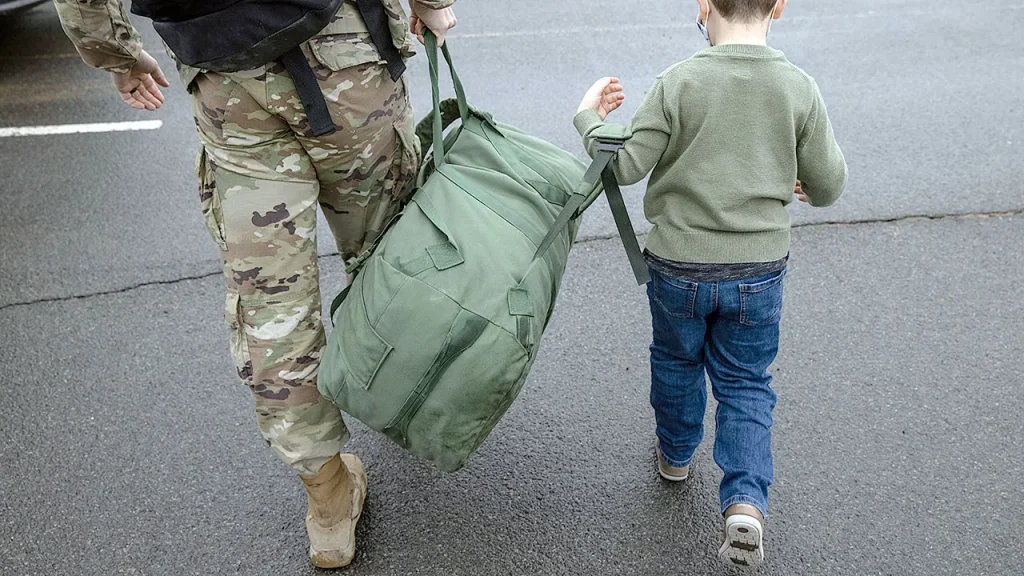The Human Side of the Government Shutdown: How Military Families Abroad Are Coping
While political battles wage in Washington D.C., American military families stationed overseas are experiencing the government shutdown in profoundly personal ways. The impact extends far beyond the headlines, affecting everyday life for thousands of Americans serving their country abroad. Substitute teacher Donna Irwin, working at a naval base in Italy, describes the situation bluntly: “It has been absolutely terrible to watch and the morale at the school, I mean it’s low.” This sentiment echoes throughout military communities worldwide, where families find themselves caught in financial limbo through no fault of their own. The shutdown has created an atmosphere of uncertainty and stress that permeates daily life for those already making sacrifices to support America’s military mission abroad.
The Department of Defense Education Activity (DoDEA) operates an extensive network of 161 schools across 11 countries, seven states, and two territories, spanning 10 different time zones. This educational system serves approximately 67,000 military-connected children, employing over 14,000 staff members who play a crucial role in maintaining stability and educational continuity for military families. Despite the shutdown, DoDEA’s communications operations chief Jessica Tackaberry has reaffirmed their commitment to providing “world-class education” while acknowledging “the difficulties this situation may create for our dedicated educators and staff who are working without pay.” The organization continues to monitor the situation closely, offering guidance and support where possible. Even during this challenging period, athletics and co-curricular activities have been maintained as essential services, recognizing their importance to students’ overall well-being and development.
The financial strain on military families is becoming increasingly difficult to manage as the shutdown continues. While active-duty service members received temporary pay solutions, civilian employees and contractors on military bases find themselves working without compensation. Irwin considers herself relatively fortunate since her husband, a sailor, still receives his paycheck, but with half their household income suddenly suspended, they’ve been forced to make difficult budget cuts. The situation creates a unique burden for Americans stationed overseas, who face additional complications not experienced by their stateside counterparts. Many are prohibited from taking second jobs off-base due to contractual restrictions, and living thousands of miles from extended family eliminates potential support systems that might otherwise provide temporary financial assistance. Some families now face the daunting task of explaining to European landlords that, despite being employed by the world’s largest military, they cannot pay their rent or utility bills.
The shutdown has forced many military families abroad to completely reassess their financial situations and make painful cuts to stay afloat. “We oftentimes forget about all those little auto-pay things we have — everything from streaming services to healthcare needs — and they’re having to do these deep dives into their bank accounts and cancel all of these, you know, car insurance, your vehicle,” Irwin explains. What makes the situation particularly frustrating is that these families are already making significant sacrifices to support America’s global military presence. As Irwin puts it, “Especially out here, you feel forgotten because we are here to support that mission — as DoD contractors, as spouses and family members of the service members. You know, these bases, these installations — they really don’t function without us, without our vital jobs and our support.” This sentiment of feeling abandoned while continuing to fulfill vital roles highlights the disconnect between policy decisions in Washington and their real-world consequences.
Despite these challenges, educators and support staff on military bases continue prioritizing their students’ needs, often at personal expense. Irwin, who teaches special education with a focus on essential life skills like cooking and cleaning, now purchases necessary classroom supplies out of her own increasingly limited funds. “I have no budget for any of that in my current classroom, so I’ve been having to go to the commissary myself and make do, trying to buy things that I can’t afford right now for these students who desperately need those life skills,” she explains. This dedication to mission speaks volumes about the character of those supporting military communities worldwide, who continue fulfilling their responsibilities despite financial hardship. It also underscores the often invisible costs of government shutdowns that rarely make headlines but profoundly affect real people’s lives.
Perhaps most heartbreaking is how the shutdown affects military children, who already face unique challenges including frequent relocations and parents’ deployments. “I think the saddest thing for me is watching my students come in, and they don’t fully understand everything that’s happening with the government and with politics and to see them worried, to see them worry about, ‘Am I going to have a meal tomorrow, am I going to have a meal today?'” Irwin shares. These children, whose parents serve the nation, now face food insecurity and witness the stress and anxiety of their teachers and parents. Even when the government eventually reopens, the psychological impact of this uncertainty will linger. Additionally, the logistical challenges of reestablishing financial stability will take time, as payment systems restart and back pay is processed. For military families stationed overseas, the government shutdown isn’t just a political disagreement—it’s a deeply personal crisis affecting their most basic needs while they continue serving their country far from home.













